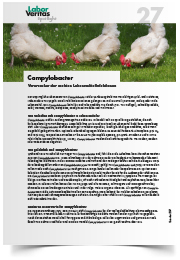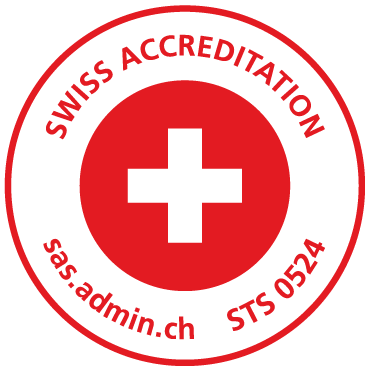Der ursprüngliche Lebensraum von Campylobacter ist der Verdauungstrakt von warmblütigen Wild- und Nutztieren, insbesondere von Vögeln. Durch Fäkalkontaminationen gelangen sie in die Umwelt (Gewässer, Boden) oder in die...

Spotlight Nr. 27
 Labor Veritas AG ist ein nach ISO/IEC 17025:2017 akkreditiertes Prüflaboratorium.
Labor Veritas AG ist ein nach ISO/IEC 17025:2017 akkreditiertes Prüflaboratorium.
Aktuell
Labor Veritas News
Quecksilberanalytik mit DMA
Wir haben die Quecksilberanalytik vom AAS-Gerät (Atomabsorptionsspektrometrie) auf ein DMA-80 (Direct-Mercury-Analyzer) der MWS GmbH transferiert. Mit der direkten Verbrennung wird ein Grossteil der aufwendigen Probenvorbereitung umgangen und somit...
Labor Veritas News
Nachweis von L. monocytogenes per PCR
Um die Sicherheit in der Lebensmittelkette zu gewährleisten, ist die regelmässige Überwachung von Produktionsstätten und Endprodukten auf Listeria monocytogenes unerlässlich. Neben den bereits etablierten klassischen Methoden gemäss ISO...
Labor Veritas News
Klimawandel und Managementsystemnormen
Viele unserer Kunden sind nach einer ISO-Norm zertifiziert. Einige durften wir bei der Entwicklung des Systems und der Zertifizierungsreife unterstützen. Deshalb folgender Hinweis: In der ISO-Welt gibt es...
Labor Veritas News
Neue Website am Entstehen
Nach der Einführung des neuen Wiki Veritas sind wir nun daran, eine neue Website aufzubauen. Wir sind uns bewusst, dass die Aktualisierungen auf dieser Website nur noch zögerlich...

